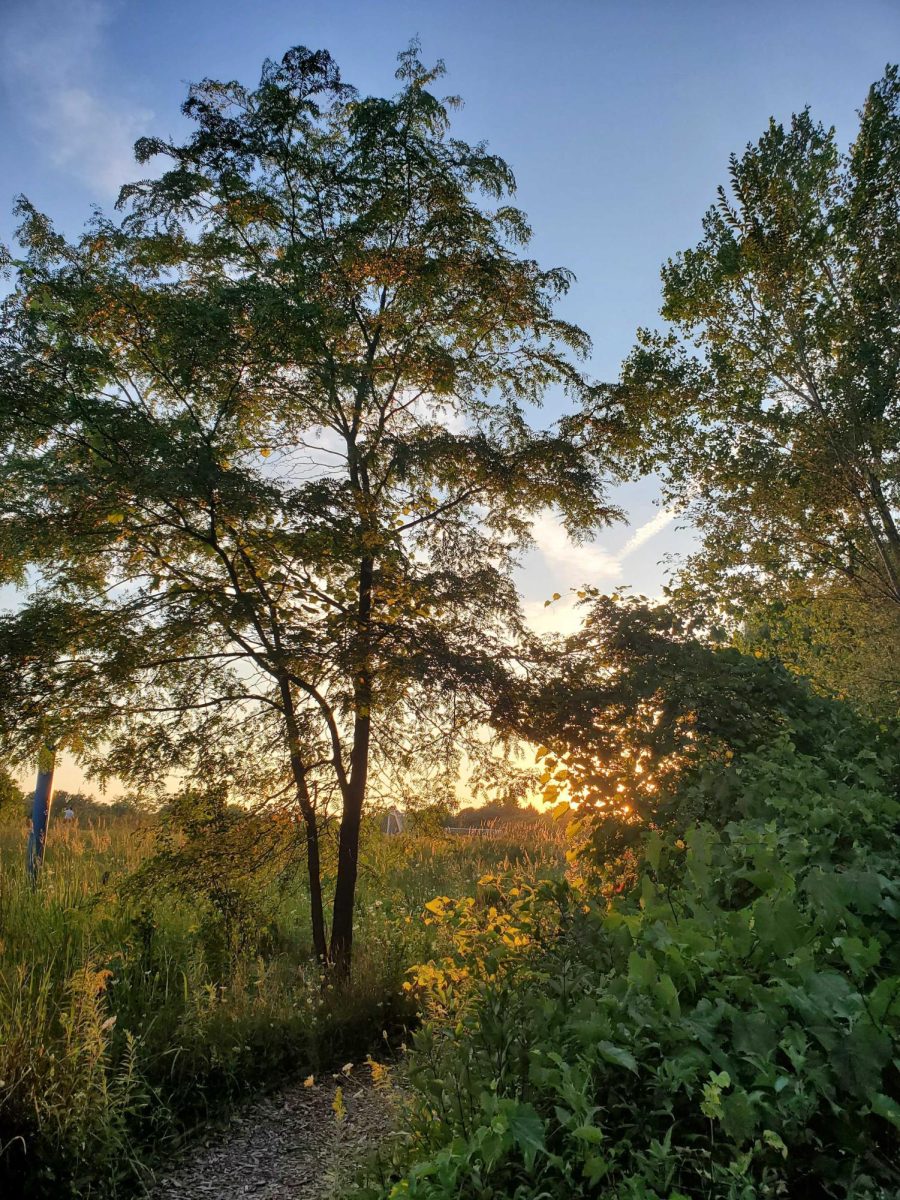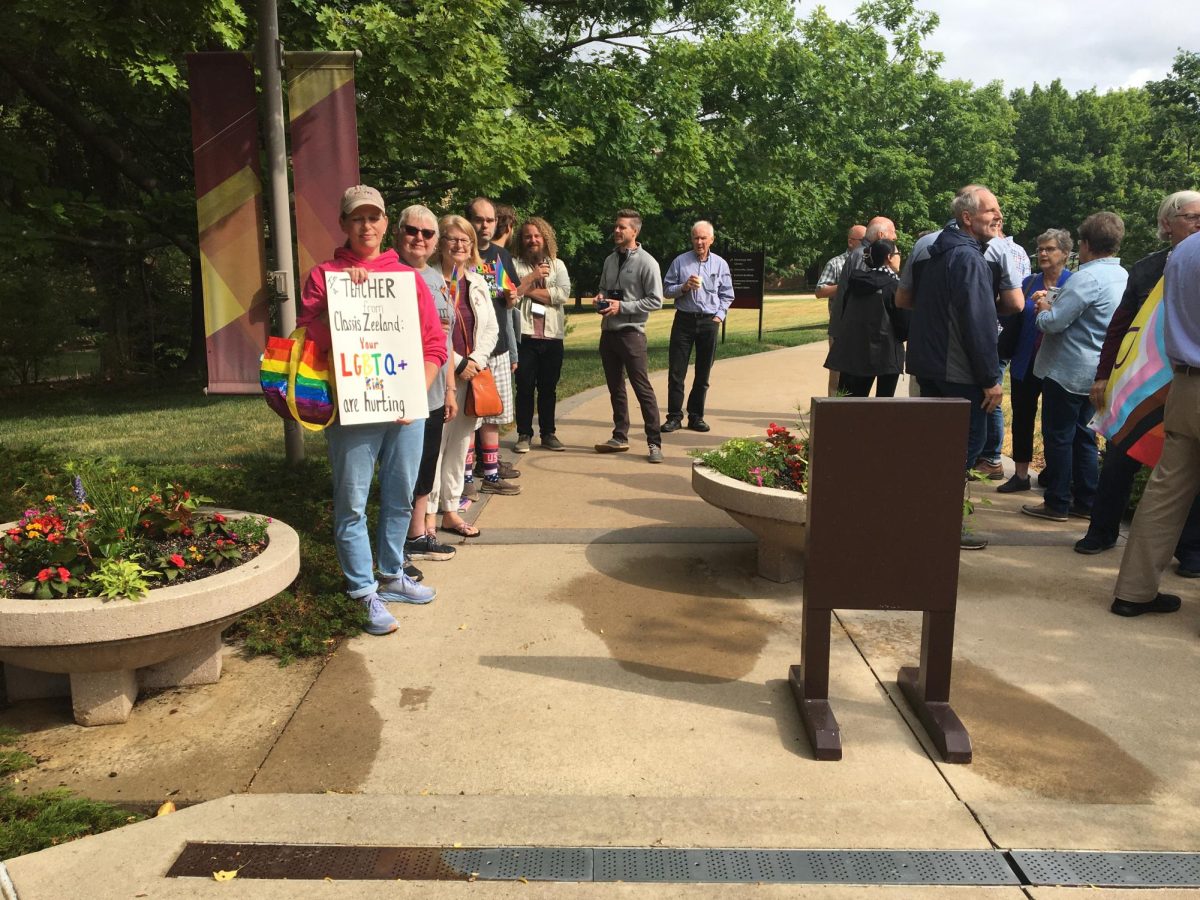Calvin’s 2024 Kill-a-Watt challenge led to dorms saving close to 3,000 kilowatt-hours (kWh) of power and engaging in multiple sustainability challenges and educational opportunities. In the end, residence hall KHvR took the lead.
Kill-a-Watt is an annual “residence hall wide sustainability competition” at Calvin that takes place in January with the goal to “be a fulfillment of its vision to be ‘caretakers of creation and agents of renewal for creation in our daily lives and as a collective community’” according to the Calvin website. The month-long event tracks the number of points accumulated by dorms throughout the month “based on three categories: lifestyle survey points, event attendance and power consumption” according to Sam Steen, sustainability intern for ResLife.
Lifestyle points are awarded based on every “sustainability challenge, like taking the bus instead of driving,” that residents sign up for, according to Steen. Event points work about the same, where points are awarded to the dorm for every Kill-a-Watt event a resident went to. Lastly, points are awarded based on the dorms’ power use, which “account for all energy use in dorms except for hot water and heat.” Each dorm consumes power differently based on things like infrastructure and occupancy, so “we score based on how much power dorms saved relative to a baseline timeframe,” Steen said. This baseline is generally taken two weeks before fall finals. “We do a similar measurement during Kill-a-Watt and find out how much power we saved,” Steen told Chimes.
This year, residence hall KHvR won the event based on their attendance at the events and energy consumption. Meanwhile, Beets-Veenstra managed to become the most improved dorm hall of the event. This title was given when comparing their positive score this year to their negative score last year. According to Steen, last year BV “managed to use more power during Kill-A-Watt,” earning them negative points so much so that it “outweighed all the points they had gotten” elsewhere. This was a first in Kill-a-Watt history, as far as Steen knew. Steen also pointed out that overall, this year’s dorm combined power consumption has improved since last year.
Outside of the competition, Abby Dykstra, a sophomore civil engineering major who helped coordinate the collaboration and collection of Calvin’s electricity data, noted that “our actions during Kill-a-Watt made a tangible difference.” Every dorm used less energy than they do on a typical month, saving enough energy to “run two houses for a month,” or a total of 3,000 kWh saved by the dorms combined.
Per day, the combined usage of every dorm was at 2933.3 kWh/day before Kill-a-Watt. During Kill-a-Watt, the combined number dropped to 2786.1 kWh per day. This breaks down to roughly 2.355 kWh saved over the month per dorm resident. KHvR had the greatest savings of .206 kWh per resident per day, according to Dykstra.
“I think this really shows the importance of collaborative action –– those 3,000 kWh are the sum of many small actions by many individuals that added up to make a real difference,” Dykstra told Chimes. According to Jack Klopp, a sophomore studying civil and environmental engineering and sustainability coordinator, tracking things like electricity and water usage does more than “add a competitive edge” but also allows for “the measurement of tangible outcomes.” This allows for each dorm to gauge the “effectiveness of sustainability efforts and identify areas for improvement.”
This year, a collaboration with Hope College added a new layer to the competition. Dykstra said the connection was formed with Hope’s sustainability club at Calvin’s Faithfully Advancing Sustainability Together (FAST) conference. The collaboration provided many new perspectives and ideas for each group and is a connection that the coordinators “hope to keep growing” in years to come.
Part of this collaboration was comparing Calvin’s energy usage during the month to Hope’s energy usage. “We’re still waiting for Hope to collect their data on electricity usage, but we’re hoping to declare a winner soon,” Dykstra said.
“I hope students learn how important sustainability is, as well as how easy it is to make sustainable changes in your daily life,” Dykstra said. “Although Kill-a-Watt only lasts a month, our commitment to sustainability should be year-round.”






